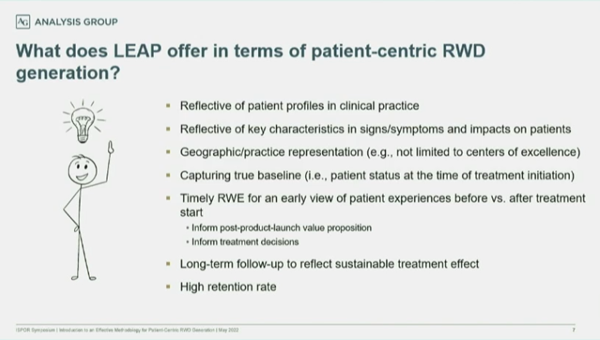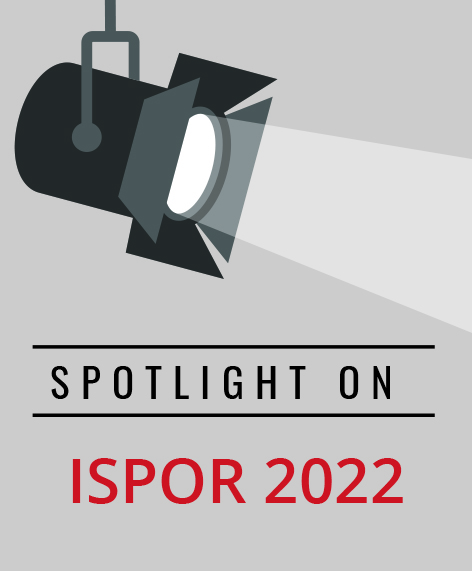Advances in the Development of Real-World Evidence
Trupti Dhumal, MS, BPharm, West Virginia University, Morgantown, WV, USA
In conducting real-world evidence studies, the dilemma of ‘garbage in / garbage out’ is always an issue. How do we get gold out of garbage? And what is the appropriate method to mine that gold?
Eric Wu, PhD (Analysis Group, Inc, USA) kicked off this exciting session by raising this critical discussion topic. Collection of real-world evidence (RWE) often requires different standards. Even if we have high-value data, it is important to understand the right practices to generate high-quality data to support decision making. The purpose of this session was to introduce different approaches to generating RWE by demonstrating patient-centric data innovations and discussing its application in supporting regulatory decision making. Wu highlighted the importance of implementing patient support programs to supplement and streamline patient-centric care.
The first presenter Min Yang, PhD (Analysis Group, Inc, USA) demonstrated methods to generate high-quality RWE that can leverage patient support programs. Yang shed light on the elements of patient-centric real-world data (RWD) (data directly derived from patients treated at practice) and highlighted its differences from the general RWD. She introduced the state-of-the-art LEAP methodology that allowed the longitudinal capture of patient data during a study before the consent until the end of the patients’ involvement in the study Figure). LEAP also allowed prior authorization of treatments, further supplementing evidence for physician review. Further details on the application of the LEAP method are demonstrated in the RELIVE-AD project. This study focused on treatment associated with dupilumab use in atopic dermatitis. It is a pre-post observational longitudinal patient cohort study.
Figure. What does LEAP offer in terms of patient-centric real-world data generation.
RWE research has traditionally faced several challenges in China. To address this, the presenter Jia Zhong, PhD (Analysis Group, Inc, USA) discussed 2 case studies on generating high-quality RWE in China. The first study stemmed from the national longitudinal cohort of hematological diseases in China (NICHE) and focused on the use of validated algorithms to understand the treatment pattern of patients living with acute myeloid leukemia in China. Zhong introduced an innovative data driven disease model developed to answer the question of data generation and recording true clinical behaviors. In another study, researchers applied a creative design of a multicenter physician survey to generate reliable RWE to support China’s National Reimbursement Drug List negotiation.
LJ Wei, PhD (Harvard School of Public Health, USA) took over the latter part of the session by discussing the practical experiments in utilizing real-world and clinical trial data for assessing treatment effects. He discussed the considerations in the creation of a historical control arm to support regulatory approval. Some of his suggestions included methods of adjustment like propensity score matching, inv probability treatment weighting, outcome regression, and entropy balancing.


